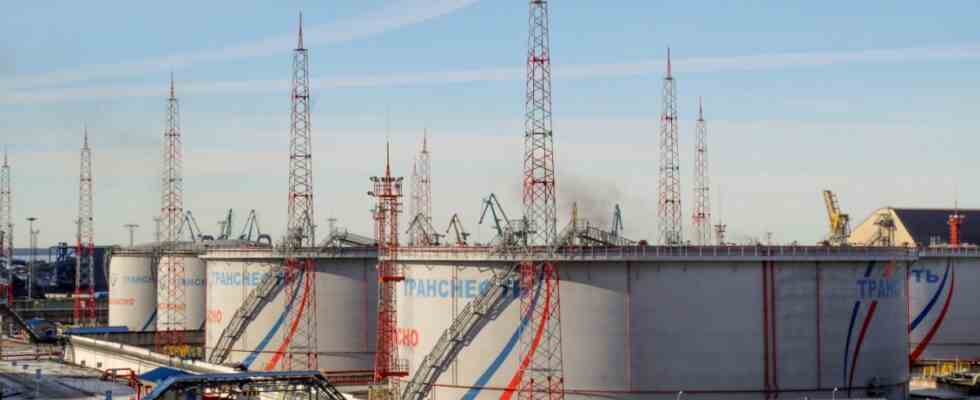The agreement was reached shortly before. This Sunday, the price cap imposed by the West on Russian exports of diesel and other refined oil products came into effect. But the EU governments were only able to agree on Friday evening communicate important details: the height. In the end, Member States simply endorsed the Commission’s original proposal. The fact that tough haggling had been necessary beforehand was due to Poland and the Baltic countries. They wanted to push through a lower limit in order to further reduce the income of the warmonger Russia.
Such a position always ensures governments ample applause. But not everything that sounds good is good. Because there are good reasons against an overly harsh price limit. After all, President Vladimir Putin could completely stop exports in this case – with dire consequences for consumers in Europe and especially in the emerging countries.
The diesel cap is part of a comprehensive operation. An import ban on Russian crude oil came into force in the EU two months ago. At the same time, the G 7, i.e. the seven largest western industrialized countries, imposed the EU and Australia Price limit for Russian oil exports to the rest of the world. Putin has to sell elsewhere the quantities he can no longer get rid of in Europe – and the upper limit caps the profits he can make there. As a second step, an EU import ban for Russian diesel and other refined products followed on Sunday. Plus a price cap on Russia’s exports of these fuels to the rest of the world.
In the end, the EU governments supported the Commission’s proposal to set the limit at $100 per barrel for diesel and $45 per barrel for cheap products such as heating oil. A barrel is 159 liters. This is just below the current prices in Europe. In order to enforce the cap, the western states are using shipowners and ship insurers: They are only allowed to participate in ship transports of Russian diesel if the cargo was sold at prices below the limit.
India pushes Russian oil prices down
The goal of the import bans and caps is to slash the profits of Russia’s oil industry without shrinking the supply of oil and diesel on the world market too much. For the corporations, the convenient sales market of Europe is gone; they have to redirect their deliveries, for example to Asia, which is difficult and expensive. Since buyers like India are aware of these needs, they can push prices down. That’s why Russia can only sell crude oil and diesel at heavy discounts from the world market price. The price caps are intended to further strengthen customers’ negotiating position and prevent Putin from benefiting if prices on the world market pick up in the future.
There is one thing the western allies do not want, however: that Russia drastically cut back its exports. The EU countries are closing the gaps created by the import bans by looking for new suppliers. However, these quantities are then lacking in the emerging countries. Therefore, they are dependent on being supplied by Russia. If Putin turned off the tap, world market prices would shoot up, emerging countries might no longer get enough oil and diesel, and motorists in Europe would curse price increases at petrol stations.
Experts appreciatethat alone the import ban and the price cap for crude oil have reduced Russia’s revenues by 160 million euros a day. Now the same applies to diesel. Of course, lower limits would result in even more painful penalties. But it could also be the case that Putin prefers to stop exports in order to spread a little chaos. This risk is too great and the benefit is doubtful anyway. Because the Kremlin will not have to end its war three weeks earlier just because oil revenues are falling more sharply. Such an idea is completely naive. The war will probably drag on – unfortunately.
And that’s why all sanctions must also be designed in such a way that the West can endure them for a long time – without turbulence on the world markets, without massive damage to its own economy. The following therefore applies to the price cap: caution is better than bold severity.

